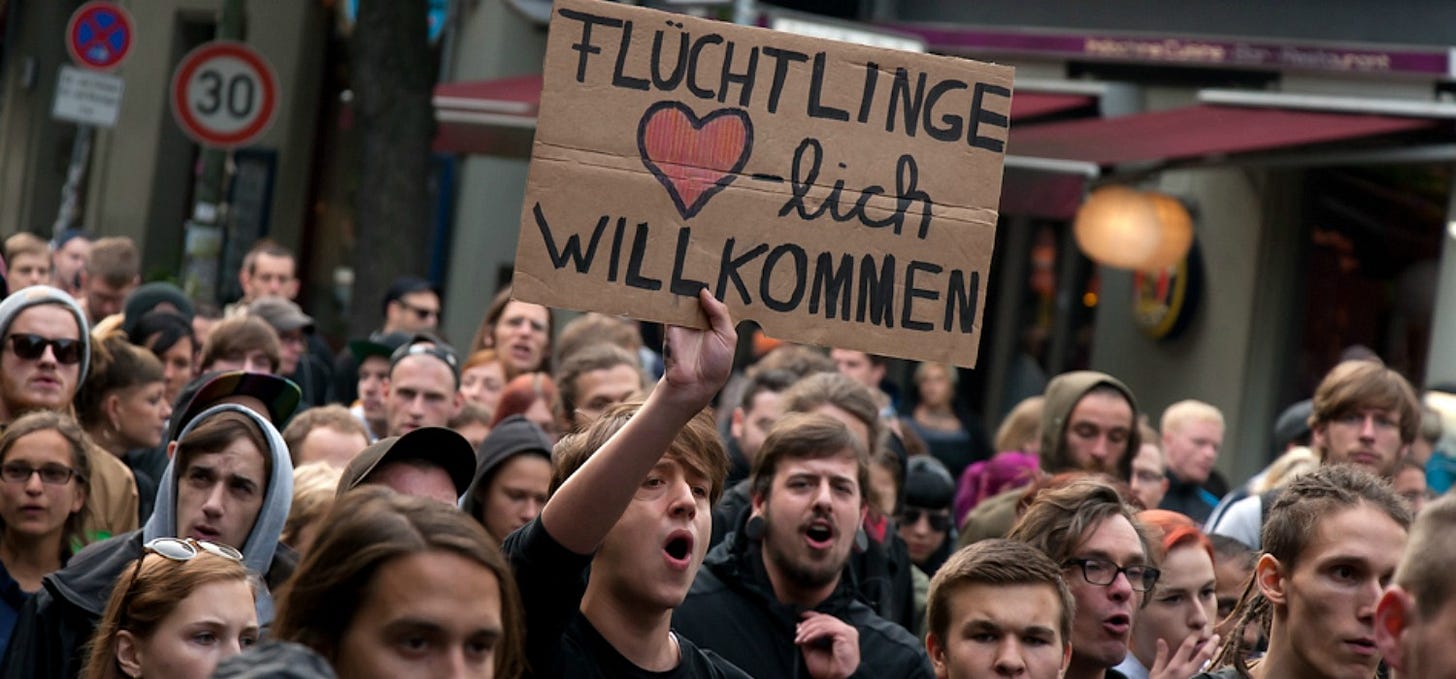No pull effect from Merkel's "We can do it"
#376

Friend of Democracy,
If you've lived in Germany for some years, you might be familiar with the following debate.
In 2015, when many refugees, especially from Syria, came to Germany, there was a so-called welcoming culture ("Willkommenskultur) in large parts of the German society. The people from the Syrian war zone were welcomed with open arms, and then-Chancellor Angela Merkel uttered the legendary phrase "Wir schaffen das" ("We can do it”).
One key concern back then was that Merkel's decision to allow over a million asylum seekers to cross the border into Germany would signal an open-door policy to aspiring migrants worldwide, making the country permanently more attractive to irregular and humanitarian migrants.
This so-called pull-effect hypothesis has been a mainstay of policy discussions in Germany ever since.
The thing is: the pull-effect hypothesis is wrong.
Migration to Germany declined sharply in the years following 2015.
In the paper "Did Merkel's 2015 decision attract more migration to Germany?" the two economists Jasper Tjaden and Tobias Heidland reject the 'pull effect' hypothesis.
They write:
"Our findings suggest that Merkel's controversial 2015 decision to allow tens of thousands of asylum seekers to cross the border into Germany neither attracted sustained subsequent migration flows nor measurably raised aspirations to migrate to Germany in origin countries worldwide within the following 5 years before the COVID-19 crisis hit. The evidence presented debunks the so-called 'pull-effect' hypothesis often put forward in political and media discourse. Merkel's 2015 policy decision is an extreme case where 'pull effects' would be most plausible given the broad global media coverage and therefore most likely to be empirically detectable. However, as we show, there is no evidence of a 'pull effect' when looking closely at short-term changes in the days around the policy change or, more broadly, at monthly and annual data following 2015."
See you in Democracy,
Johannes Eber

